“No talk of putting Switzerland on blacklist”
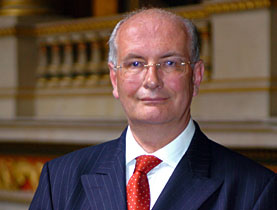
The G20 member countries have not specifically discussed putting Switzerland on a tax haven blacklist, according to the British ambassador to Switzerland.
But Switzerland has underestimated the political pressures building up over banking secrecy and the change of mood in countries that have been badly hit by the financial crisis, John Nichols tells swissinfo.
Switzerland’s tradition of banking secrecy has come under renewed pressure recently.
The country’s largest financial institution, UBS, is the subject of a major United States probe into whether it conspired to defraud the US government of taxes owed by thousands of American clients.
The Swiss government came under fire last week after it allowed UBS to disclose the identity of about 300 of its US clients to avert criminal charges.
The European Union is also mounting a renewed campaign against tax havens deemed to be uncooperative ahead of a meeting of 20 of the world’s largest economies in London in April.
swissinfo: French President Nicolas Sarkozy says he has not ruled out that Switzerland could be placed on a tax haven blacklist of the G20 countries. What is Britain’s position?
John Nichols: Just recently British Prime Minister Gordon Brown announced that one of the topics for the G20 would be to look at tax havens [as they are] broadly defined, and to try to find a new framework for them to sign up to.
There has been no specific talk about putting Switzerland on a blacklist and as far as I know no specific talk about blacklists. There is already a blacklist structure managed by the OECD and Switzerland doesn’t feature on those lists.
In recent months there has been a rapid change in the mood of the man in the street. People are beginning to realise that sorting out the aftermath of the financial crisis will mean increased taxes for everyone, not just for their lifetimes but for their children as well.
They are also realising that there are a number of people who, by whatever methods, don’t pay their full contribution to the tax bill. This is building up an extraordinary amount of political pressure on leaders throughout the western world. People in the street do not like this and want their politicians to do something about it.
swissinfo: Have the Swiss underestimated political pressures that are felt by other countries?
J.N.: I think they have. By and large, Switzerland hasn’t been hit by the financial crisis in the same way as other countries. I don’t think there is full realisation of just how much pressure is building up in the system.
swissinfo: Is the tide turning against banking secrecy?
J.N.: I don’t think there’s any doubt about that. But it’s not just something that’s blown up in the last few months or years. Negotiations on greater transparency have been going on at the OECD for an extremely long time.
What has given it greater urgency and edge has been the financial crisis, but it is also the election of the Obama government, which made its views perfectly clear in the run up to the November elections last year.
swissinfo: In the long term will Switzerland be able to maintain its distinction between tax evasion and tax fraud?
J.N.: The English-speaking world has a great deal of difficulty with those concepts. Under English law, tax avoidance, employing experts not to find loopholes but working with the law to pay as little tax as possible, is entirely legal. But tax evasion, driving a coach and horses through the law, is absolutely illegal and always has been.
The Swiss tendency to say ‘tax evasion is alright and there is a distinction with tax fraud’ is not one that is easy to understand in an Anglo-Saxon country. I think that there will need to be changes there.
swissinfo: Critics say targeting Switzerland in a global crackdown on offshore regimes reeks of double standards as nine of the 31 tax havens on the current OECD black list are under British control. What’s your response?
J.N.: It’s important to realise that the arguments that applied six months ago are just no longer there. We’re in a totally new ball game. The British Chancellor commissioned a review into the Crown dependencies and overseas territories last November with the aim of bringing them into the same sort of framework.
A number of those countries, Jersey, Guernsey, Bermuda, the Isle of Man and the British Virgin Islands, have all signed tax information exchange agreements and are negotiating more. They are starting to move into a framework where their operations are much more transparent, and this is not an area where Switzerland has moved very far on.
swissinfo: There have been a number of complaints about Switzerland’s withholding tax rules, which are full of holes. Do we want to renegotiate those?
J.N.: The short answer is yes. If there are loopholes they need to be closed. This is an immense agenda that is landing at great speed.
swissinfo: Switzerland has not been invited to the G20 meeting. How will it be able to make its voice heard?
J.N.: There was a real difficulty over invitations, as Switzerland wasn’t the only country that wanted to be sat around the table apart from the original G20.
I have instructions to talk to senior officials here to ensure their views are fed into the London process. But don’t forget that Switzerland is a member of the Financial Stability Forum, one of the bodies that feed into the work of the G20.
And there are a number of other working groups, which were set up at the G20 meeting in Washington last November, and the co-chairs accept representations from anyone.
Switzerland is entirely free to contribute to those groups and I hope it is taking full advantage of that.
swissinfo, Simon Bradley
Tax havens are traditionally locations with varying taxation laws.
In 2000 the OECD published a preliminary list of 35 “uncooperative” tax havens. The majority agreed to work toward OECD agreed standards of transparency and the exchange of information, and were no longer classified as uncooperative. Those that did not agree were Andorra, Monaco and Liechtenstein.
In its 2008 report on tax cooperation, the OECD said several states had taken steps to improve information relating to property and access to bank information for tax purposes.
The OECD still considers there to be significant restrictions in the area in three member countries, Switzerland, Austria and Luxembourg and in several off-shore centres including Liechtenstein, Panama and Singapore.
People wishing to dodge paying taxes on their assets can do so by three means: avoidance, evasion and fraud.
Avoidance is the legitimate means of structuring finances so they don’t fall under the scope of taxable assets. This can be done, for example, by setting up a trust fund or by changing country residence or nationality.
Evasion is the deliberate concealing the true state of assets from the tax authorities – in other words, lying about the extent of your assets. This is a civil offence in Switzerland and some other countries, such as Austria and Liechtenstein, but criminal in most states.
The main distinction between evasion and fraud is that the perpetrator tells lies on official documentation. Unless tax fraud can be proved, Swiss banks are not obliged to hand over details of client assets to investigators. In some cases this information is needed before fraud can be established in the first place.

In compliance with the JTI standards
More: SWI swissinfo.ch certified by the Journalism Trust Initiative


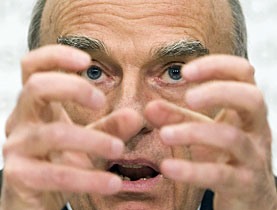
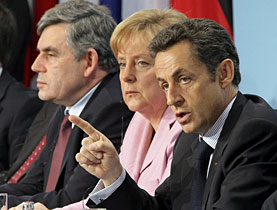
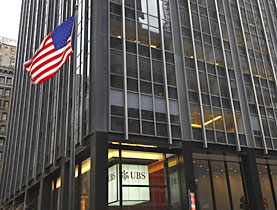
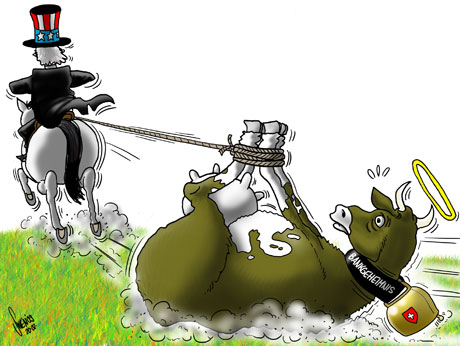
You can find an overview of ongoing debates with our journalists here. Please join us!
If you want to start a conversation about a topic raised in this article or want to report factual errors, email us at english@swissinfo.ch.